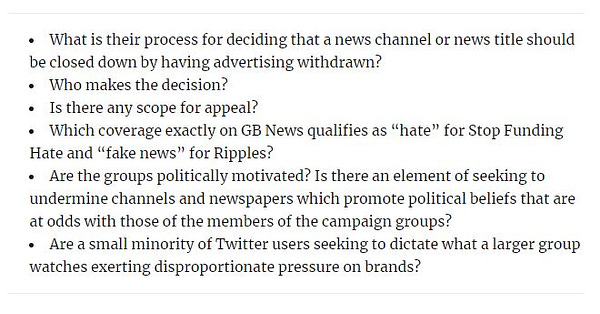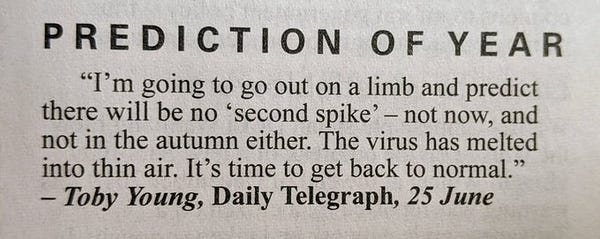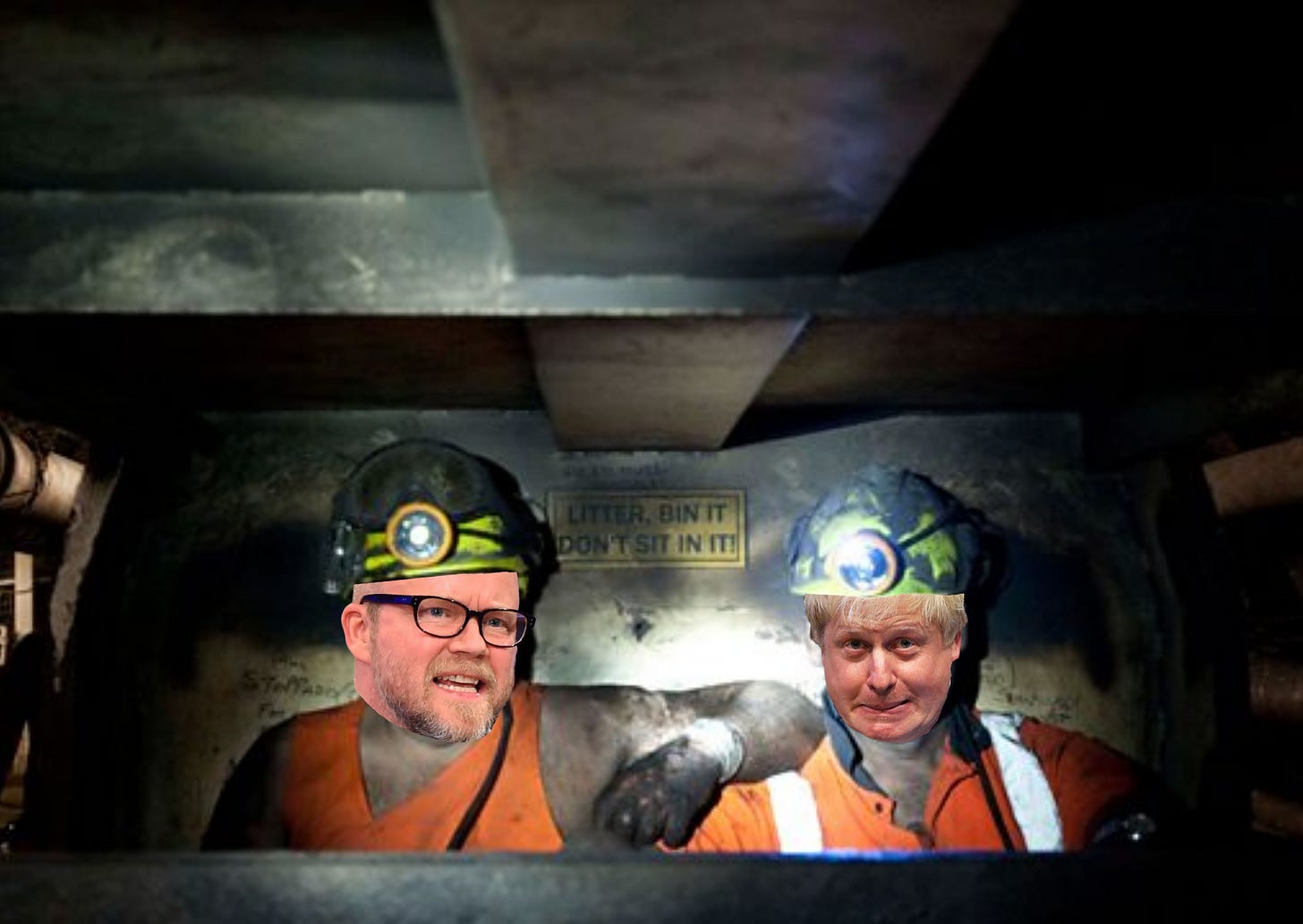Unionise the Bullshit Mines: Journalists' explanations of why they're not trusted often ignore the obvious...
The Reuters Institute for the Study of Journalism reveals trust in journalism is in crisis... just like it was last year and the year before.
Estate agents know what they are. Strip back all their lies about the latest “stunning” property they have to show you — a collapsing shed in someone else’s back garden (“a bijou one-bed with rustic wooden charm!) or a decaying bedsit with the toilet in the middle of the kitchen (“incredible easy access to facilities!) — and you’ll find they’re pretty clear on their role in the world.
You’re unlikely to stumble across an estate agent who claims to “speak truth to landlords” or argues with excess sincerity that they are part of an honourable profession. But journalists, who regularly compete with estate agents and politicians for the bottom spot in the list of people least trusted by the public, have a very inflated view of themselves, their work, and their trade.1
The Reuters Institute for the Study of Journalism (RISJ) released its latest Digital News Report this week, which surveyed 92,372 people across 46 countries. It shows that the proportion of people in the UK who say they trust the news media has risen by 8% — from 28% to 36% — perhaps due to the increased levels of current affairs consumption during the pandemic. However, in 2016, prior to the Brexit referendum, trust levels were as high as 50%.
Finland was the highest-ranked nation for trust in the media at 65%, with the UK bobbing around the lower part of the mid-table with an identical score to Spain, Chile, Argentina, and the Czech Republic. The post-Trump US came dead last with 29%, with France, Slovakia, and Hungary all just above it with 30% trust.


Another sign of cynicism or scepticism depending on your perspective is that only 44% of people in the UK said they trust the news they use. Levels of trust for news offered up in search results are at just 15% while only 6% of those surveyed said they trusted news they saw on social media.
Nic Newman, Senior Research Associate at the RISJ and the lead author of the report, said:
We can speculate that this higher trust in the news — and in the sources people use themselves — could be related to extensive coverage of coronavirus. The focus on factual reporting during the Covid-19 crisis may have made the news seem more straightforward, while the story has also had the effect of squeezing out more partisan political news.
Having read and analysed multiple British newspapers every day throughout the pandemic, I’d question the last part of Newman’s conclusion.
Whether it’s the culture war-obsessed Times, the flag-shagging antics of The Sun, or the conspiracy-adjacent ramblings of The Daily Telegraph, partisanship is a key element of the British news media and those angles are picked up by the radio and TV alike. On an average morning, you’d struggle to get a cigarette paper in the gap between the Today programme’s running order and the Daily Mail’s news agenda.

Journalism as an industry should be mortified that a majority of people say they don’t trust the news. That 36% trust number is soft, inflated by one of, if not the, biggest global news event in decades. Add to that a 17 percentage point drop in UK respondents who say they are “very or extremely interested in the news” — the joint biggest decline with Spain — and things look even worse.
The report’s figures on trust in specific brands suggest that those who do consume news have a deeply masochistic relationship with it. The Daily Mail — the country’s biggest paper and a monstrously large online presence through MailOnline — is trusted by just 26% while 47% wisely say they actively distrust it.
The Sun — recently written down to zero by Rupert Murdoch — fares even worse with 13% saying they trust it while 67% distrust it and a clearly very confused 23% neither trust nor distrust it. Its natural enemy, The Daily Mirror, did marginally better at 23% trust, 33% neither distrust nor trust, and 47% actively distrusting of its output.
Despite sustained campaigns by both the newspapers and astroturfing groups like Defund The BBC, the BBC continues to be the most trusted news brand — 62% of people said they trust it, 17% were ambivalent, and 21% were distrustful. ITV News (61%), Channel 4 News (58%), the Financial Times (56%) and Sky News (54%) round out the top five most trusted brands.
And what do all those ‘trusted’ news providers have in common? Ofcom’s rules for impartiality which, as flawed as they are, keeping the broadcasters far more in check than the press.
The nakedly partisan approach of the newspapers explains why their trust levels are so low, even if like The Daily Mail, being considered full of shit doesn’t hurt sales much. The British newspapers twist more than Chubby Checker and spin faster than an Australian bowler on amphetamines.
We can and will follow the United States’ lead in forcing trust in journalism even further into the dumper. The much-trailed government desire to install Paul Dacre at Ofcom, the potential sale of Channel 4, Tory support for GB News, and suggestions impartiality rules should be severely loosened are the recipe required to get us there.
For all the Culture Secretary, Oliver Dowden, burbles on about a plurality of views and free speech, it’s clear that his real interest is in freedom for right-wing speech. Hence why his op-eds always appear in The Times or The Daily Telegraph, chunks of red meat tossed to the faithful.

The RISJ report says of the US’ continuing decline in trust:
Political divides fuel much of this mistrust in the United States, with those who self-identify on the right being more than twice as likely to distrust the news compared with those on the left. Resentment and anger are stoked by polarised TV networks such as right-leading Fox News, One America News, and Newsmax and left-leaning CNN and MSNBC.
That’s not a nightmare for the Boris Johnson-led Conservative Party, it’s a dream. Throughout Johnson’s tenure in Downing Street, we’ve seen increased efforts to shut out reporters he doesn’t like, more messages dripped directly into the ears of pliant hacks at his former home The Daily Telegraph and The Times which is often only the paper of record in so much as it records and relays what government flacks have told it.
Efforts like Johnson broadcasting directly from Downing Street for ‘People’s PMQs’, access to events only being given to his personal photographer, and the Cabinet Office’s stymying of Freedom of Information requests from journalists it deems trouble all add to the same picture. That we have a press where husbands and wives of people within that government can write about it without declaration or even acknowledgement of conflicts of interests makes things even more deranged.
When the British press and wider media does address the low levels of trust in reporting, commentary and analysis, it tends to wave in the direction of social media and blame that ‘wild west’ as if its copybook is entirely blot free. Couple that with a vicious tendency to circle the wagons whenever it’s criticised and it’s no surprise that British journalism has such a trust problem.
So many hacks high on the smell of their own farts and the often ludicrous belief that they are engaged in “speaking truth to power” are simply incapable of apology or self-reflection. It can never be them; it must be the children — with their TikToks — who must be wrong. Why can’t they just read a newspaper, even if those newspapers delight in constantly writing about how awful they are?

Here are three examples from the past week that illustrate the problem:
In one of the small items in her Daily Mail column on Tuesday, Sarah Vine wrote:
Analysis by Cambridge University of more than 2.7 million Facebook and Twitter posts has revealed what we all already knew: the nastiest ones get the most traction. The authors of the study point to ‘perverse incentives’ that govern a ‘social media ecosystem where animosity is rewarded’. There, in a nutshell, is everything that’s wrong with modern life
What better definition of the Daily Mail’s columnists than “the nastiest ones get the most traction” and of the newspaper itself which has “perverse incentives… where animosity is rewarded”. The only things that separate the output of most newspaper columnists from the social media ‘trolls’ they castigate are a byline and a paycheque. Columnists’ real issue with social media is that it has opened up the opportunity to have baseless opinions on anything to everyone — they’re livid that the plebs have got in on their racket.
The second example comes from Press Gazette, the industry title whose excellent and thorough reporting on the RISJ report partly inspired this edition of the newsletter. However, it also did some absolutely ludicrous grandstanding on Twitter yesterday, posting its list of questions for Stop Funding Hate and Ripples, the groups that have been most active in pushing the GB News boycott.


My one question — which I put to Press Gazzette in a quote tweet yesterday — is: Do you know what a loaded question is?
As a trade title, it’s not surprising that Press Gazette has given GB News a lot of coverage since long before its launch — that’s its job — but its approach to the boycott story is wildly partisan. Those questions are of the “when did you stop beating your wife variety?”
The last question — “Are a small minority of Twitter users seeking to dictate what a larger group watches exerting disproportionate pressure on brands?” — is one of the most interesting. As Press Gazette itself has reported several times, three billionaire families — the Murdochs, the Rothermeres and the Barclays — control 68% of national newspaper circulation. A small minority of billionaires has been dictating what the rest of us read for a very long time.
The argument that GB News has not ‘broadcast hate’ is an extremely debatable one — you don’t need to shout and scream to push insidious ideas — as is the notion that it was ‘wrong’ to judge the channel before it started broadcasting. As I’ve written before the collection of presenters and commentators it has hired had plenty of past columns, broadcasts, and public statements to draw upon.
Press Gazette’s questions also make a big deal of whether Stop Funding Hate and Ripples are ‘political’. The media is politically motivated, newspapers are politically motivated. We live in a country where politics is everywhere and within every interaction. The implication is that the media’s politics are ‘normal’ while those held by groups that seek to influence it but aren’t part of the in-group are ‘censorship’. I look forward to Press Gazette pursuing Defund The BBC and other groups attacking the media from the right with the same vigour.


The final example comes from ever-reliable self-own generator, self-appointed union baron, and oleaginous Spectator columnist Toby Young. Distorting and deliberately misunderstanding the ‘story’ about ‘censorship’ at Oxford student newspaper, The Cherwell, despite its editors correcting The Daily Telegraph which set off the ‘row’, Young writes about his own time as a student journalist.
After some typically modest and stomach-churning reflections…
I edited a satirical magazine called Tributary, the nearest thing Oxford had to Private Eye. I remember when Boris started going out with a student at Trinity College called Allegra Mostyn-Owen. Beautiful, clever and posh, she was the Zuleika Dobson of her year — and later Boris’s first wife. I stuck a picture of her on page three and called her ‘Allegra Austin-Rover, a smooth little runner from Trinity’. I don’t suppose that would get past the sensitivity readers.
… he concludes with a Sliding Doors-style anecdote which, had it gone the other way, would have saved us all from so much deathless prose:
People who disapprove of the sort of journalism I practise will think it would have been a good thing if my career had been nipped in the bud by a sensitivity reader in 1985.
Auberon Waugh, having reviewed my sophomoric scribblings, advised me to become a dentist. But I like to think there’s still a place for waspish, opinionated journalists with a strong rebellious streak, an instinctive distrust of officialdom and a complete indifference to social approval.
Nothing says “rebellious streak” or “complete indifference to social approval” like writing for The Spectator and using that column to beg for a place in the House of Lords as Young did in February under the headline What more do I have to do to get a peerage?
In that column, Young — who dedicates much of this week’s piece to performative worries about the “rich and powerful will [finding] a way to exploit… oversight to kill off embarrassing stories — writes:
I thought my elevation to the Lords might happen when Boris became Prime Minister. Up until that point, I’d given him more tobacco enemas than any other journalist in Fleet Street. (Blown smoke up his arse.) I even wrote a 5,000-word hagiography for an Australian magazine entitled ‘Cometh the hour, cometh the man’. Indeed, I laid on the oil so thick in that piece I’m now worried that when I’m standing in front of St Peter at the Pearly Gates he’s going to bring it up: ‘You did plenty of good works, you’ve been a decent husband and father and you always gave money to beggars. But on the other hand, you did write that 5,000-word piece about Boris in which you compared him to Nietzsche’s Übermensch. Sorry mate, it’s down you go.’
Such instinctive distrust to officialdom, so indifferent to social approval.


There are many reasons why trust in journalism is declining, but the British media’s continuing support for columnists like Toby Young is up there. He and many others who burble on under well-paid bylines are physical manifestations of Humbert Wolfe’s famous and over-quoted words:
You cannot hope to bribe or twist, thank God! the British journalist. But, seeing what the man will do unbribed, there's no occasion to.
The New Yorker’s Janet Malcolm, a journalist of true quality who should never really sit in a paragraph beside Toby Young, died recently. Journalists who harp on endlessly about “speaking truth to power” and the honour of the trade, should read the first paragraph of her 1989 piece The Journalist & The Murderer. I don’t think there is any better summary of what the job actually is…
Every journalist who is not too stupid or too full of himself to notice what is going on knows that what he does is morally indefensible. He is a kind of confidence man, preying on people’s vanity, ignorance, or loneliness, gaining their trust and betraying them without remorse. Like the credulous widow who wakes up one day to find the charming young man and all her savings gone, so the consenting subject of a piece of nonfiction writing learns—when the article or book appears—his hard lesson. Journalists justify their treachery in various ways according to their temperaments. The more pompous talk about freedom of speech and “the public’s right to know”; the least talented talk about Art; the seemliest murmur about earning a living.
If more hacks took that to heart and thought on it, perhaps we’d start turning those trust numbers around.
I don’t exempt myself from this charge either; my ego is so large that it has to be stored in the overhead compartment during short-haul flights.



